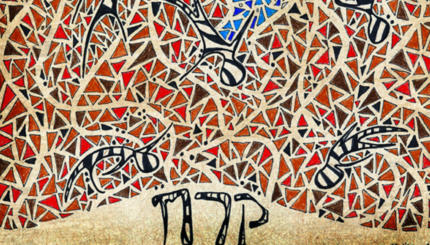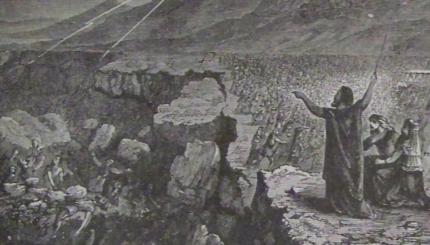There is an old joke about the itinerant maggid (preacher) who would go from town to town and give a public sermon. He was a passionate speaker and developed quite a reputation. The only problem was that he had only one good sermon for Parashat (Torah portion of) Korach. This was quite troubling as he was asked to speak in many towns on different weeks of the year and the expectation was he would speak on the weekly Parashah.
So what would he do? As he began his talk, he would “accidentally” knock his Bible off the lectern, bend down to retrieve it and declare, “Oy, the earth has swallowed up the book which reminds me of when Korach and his followers were swallowed up by the earth”, and proceed to give his Korach sermon.
To rehash the role and importance of memory in Judaism is not needed. However, there is a quality of “which reminds me” that is a staple of traditional Jewish life. This is true of our sacred texts. It is quite common in Talmudic literature to see later debates being described as manifestations of earlier ones. Debates about particular issues are analyzed in what might first appear as not easily related other debates. There is a mode of thinking that draws on the tradition and earlier contexts. While you are a voice in the discussion, you are only a voice. The conversation requires many voices over time. Your creative input is welcomed and desired in the broader context.
I think one of the dividing/border lines in approaches to contemporary Judaism centers on this issue. I have many examples across denominational lines, but allow one to suffice. A month ago I read a blog of a rabbi declaring she would skip Shavuot this year because she does not believe God gave the Torah. She proceeded to explain why the Torah was a work of genius for its time, and seemed to imply it was time to write a new Book for our time.
While on the one hand honesty can be refreshing, I was very disturbed by the piece. With some justification I could simply dismiss it as one example of the problematic nature of blogging (which my blog is guilty of as well). However what really bothered me was not the question, but the nature of the answer. No reference was made to others who confront this question in their lives. I personally know three leading Bible professors who are serious scholars, have written on this question, and they all managed to observe Shavuot this year. The greats of the previous generation all wrestled with this issue. From reading the blog you would not know they existed. It was about me, what I think, and it lacked that very conversation that is central to Jewish tradition.
Which reminds me….
Shavuot
Pronounced: shah-voo-OTE (oo as in boot), also shah-VOO-us, Origin: Hebrew, the holiday celebrating the giving of the Torah at Mount Sinai, falls in the Hebrew month Sivan, which usually coincides with May or June.
Torah
Pronunced: TORE-uh, Origin: Hebrew, the Five Books of Moses.



